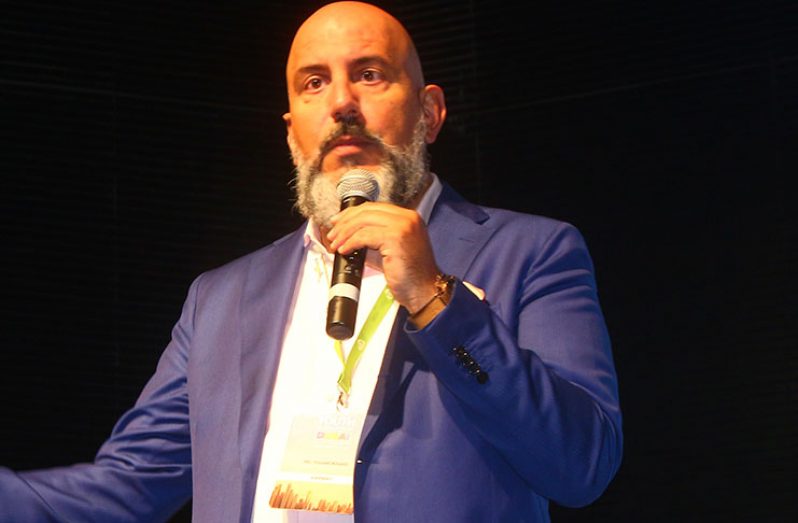– says Dubai-based expert
By Ravin Singh in Dubai
A DUBAI-based smart city expert believes that in the 21st Century, smart cities will become a necessity even for third world developing states like Guyana.
Yousef Khalili is originally from Jordan but has been living and working in Dubai for the last 25 years where he contributed immensely to the realisation of a smart city in that part of the United Arab Emirates (UAE).
He was at the time speaking at a Youth Global Forum hosted by Youth Time International Movement in Dubai. The forum is being held under the theme “Ethical entrepreneurship in the time of a knowledge-based economy.” His focus was on the role of entrepreneurs in the future of smart cities.
A city is described as a developed urban area that creates sustainable economic development and high quality of life by excelling key sectors of the society.
During his presentation, the expert outlined the characteristics of a smart city, and these include resiliency, safety, transparency, engaging, efficiency, livable, competitiveness, healthy, responsiveness, innovation and connectedness.
He said to unlock the true potential of a smart city, the infrastructure must be in place and data has to be of utmost priority.
“Data is the biggest problem and it can create the most opportunities,” he added.
Guyana has begun to take steps towards transforming Georgetown into a smart city. Plans are afoot to install parking meters in the capital – one of the features of a smart city. Further, the government’s commitment to a ‘green agenda’ further advances the prospect for a smart city.
However, Khalili was keen to note that information and communication technology is at the heart of such a realisation.
He explained that “by providing a high quality ICT infrastructure and connectivity enables smaller businesses to compete and grow on equal footing with big rivals”.
He went on to state that connectivity means citizens have access to information, knowledge to innovate, and to do business differently, and ultimately build a knowledge-based and socially connected community.
Over the last few years, the Caribbean region has intensified its push for a knowledge-based economy to advance the current production and services-based economy.
Noting that social cohesion remains one of the challenges for third world developing states, the expert said that a smart city is a place with a high social inclusion of its inhabitants. He said this attracts a young and well-educated workforce and positively impacts both productivity and sustainability.
Khalili also underscored the role of the Government in the creation of smart cities, pointing out that policy is perhaps the single most important instrument in such a process.
Since smart cities are driven by the private sector, the theme of ethical considerations and preventing people from being treated as consumers as opposed to citizens was also discussed.
Again, the expert pointed to policy and the importance of the role of Government in realising that the main focus should be to make citizens happier and more comfortable.
“Governments should not look to make more money from citizens, but to have a greater impact on their lives. But there is nothing wrong with making more money. Making more money means more money will be injected into the economy and that is increased spending and better services for people. So it benefits them in the long run” he said.
Important too, is the need for local talent to be built, through education, to sustain these cities.
“If you don’t build talent locally, smart cities will not be sustainable. So education becomes increasingly important,” Khalili said.



.jpg)








